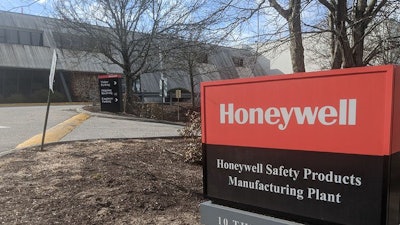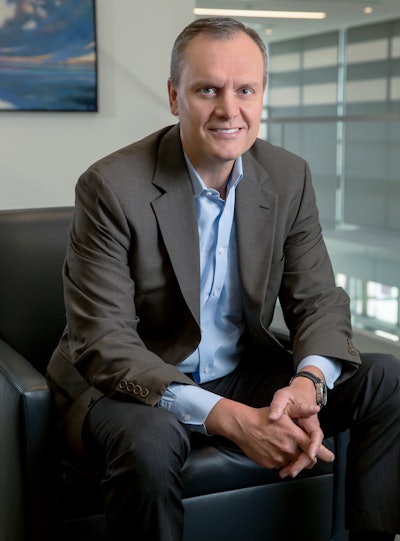
Honeywell no longer sells its iconic home thermostats, but it's still in the business of making control systems for buildings and aircraft.
That's put the 114-year-old conglomerate in a tough spot as workplaces have gone vacant and flights grounded in response to the coronavirus pandemic.
Darius Adamczyk, who became CEO in 2017, spoke with The Associated Press about how the business is adjusting to the pandemic, diverting resources to build personal protective equipment and continuing a quest for a powerful quantum computer that works by trapping ions. The interview has been edited for length and clarity.
Q: How is the crisis affecting some of your core business segments, especially aerospace?
 Honeywell CEO Darius Adamczyk at the company's Morris Plains, N.J., headquarters, Sept. 13, 2017.Jeff Zelevansky/Honeywell via AP
Honeywell CEO Darius Adamczyk at the company's Morris Plains, N.J., headquarters, Sept. 13, 2017.Jeff Zelevansky/Honeywell via AP
Q: You've had to do layoffs?
A: Unfortunately, we’ve had to take some cost actions. It's a bit more drastic in aerospace and our (performance materials) business and much less so in some of the other businesses. Some of the actions we’ve taken have been to do temporary things. We’ve created a $10 million dollar fund for employees who are financially impacted by COVID. We extended sick leave for a lot of our hourly employees. Taking care of our employees is the No. 1 priority and making sure that they’re healthy and safe, but also protecting the business long-term because the economic conditions are severe. Some of the levels of fall off here in Q2 are much more dramatic than we saw in the 2008/2009 recession.
Q: How did Honeywell get into building a quantum computer?
A: One of the bigger challenges in making a quantum computer work is the ability to really control the computer itself. The way we kind of came into this play is we’ve had the controls expertise, but we didn’t have so much trapped ion expertise.
Q: How does your approach differ from what Google and IBM have been trying to do?
A: I don’t know exactly technically what they’re doing. Some of these things are very proprietary and very secret. But we’re very confident in terms of the public announcements and what we’ve been able to learn from some of the publicly available information that we, in fact, have the most powerful quantum computer in the world. It’s going to get better and better by an order of magnitude every year.
Q: How'd you go about re-purposing factories in Rhode Island and Arizona to make respiratory masks?
A: We very quickly mobilized a couple of facilities that we weren’t fully utilizing. Something that would normally take us nine months took us literally four to five weeks to create. We’ve gone from zero production to having two fully functioning facilities, making about 20 million masks a month.
Q: President Trump didn't wear a mask while visiting Honeywell's Arizona factory in May. Did he talk to you about whether he should wear a mask?
A: No.
Q: What did he talk about?
A: He was very kind in his comments about the kind of contribution Honeywell has made, not just today, this crisis, but really in other times of crisis, such as in World War II and some of the other technologies that we’ve provided in the past. So I think it was certainly nice to hear.






















